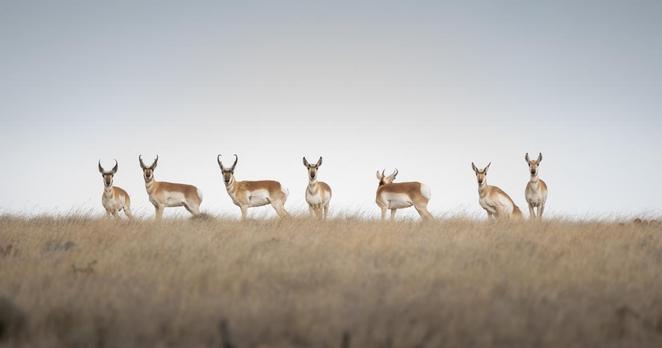#Wabanaki group restoring 245-acre farm in #SwanvilleME as food hub
#Niweskok, a Wabanaki-led #FoodSovereignty organization, recently bought the farm to aid its work reinvigorating traditional crops and land management.
by Gillian Graham, May 8, 2025
"A Wabanaki-led food sovereignty organization recently acquired a 245-acre farm in Swanville, marking the return of Wabanaki stewardship to ancestral lands in the Penobscot Bay region.
"Niweskok: From the #StarsToSeeds, a collaboration of Wabanaki #FoodAndMedicine providers, has focused for years on reinvigorating #TraditionalCrops and #LandManagement strategies, distributing #TraditionalFoods and hosting workshops. But they did not have a permanent land base until buying the farm.
" 'Now, with this land, we have permanency of place — and the ability to continue this work for generations to come,' said #AliviaMoore, a #PenobscotNation citizen and Niweskok co-director.
"Niweskok (which translates to 'dried seeds for planting' in the Penobscot language) raised more than $1.8 million in just three months to buy the farm, which had been used to raise cattle and board horses. The group continues to raise money toward its $3 million capital campaign goal.
"Acquiring the land in January was a major step toward restoring the #PenobscotBay region as a Wabanaki food hub and allows Indigenous communities to reconnect with #TraditionalFoodways, #medicines and #ecological #stewardship. Niweskok sees the land as an intergenerational center where Wabanaki values of care, reciprocity and sustainability can flourish.
Moore said the land will allow Niweskok to go much deeper in its food production work. The group’s plans for the land include educational programming, #SeedSaving, #WildHarvesting and cultural camps.
"Moore said the land itself would determine the name of the farm. The farm was selected because it is close to the ocean and Penobscot territory.
'Penobscot people have been, through the process of #colonization and #genocide, thoroughly removed from coastal access,' Moore said. 'So for us to truly have healthful economies, healthful social structures and political systems, we need to be able to engage in our coastal ecology.'
"The land, with access to the #GooseRiver, includes agricultural #fields, 140 acres of #forest, #wetlands and ponds. There are miles of riding trails through the woods, which Niweskok staff will map and decide which to maintain and whether more are needed for waterway access.
"Niweskok staff members have been preparing the soil for future planting and harvesting. Moore has been working on a 1-acre welcome garden that includes #perennials, #FruitTrees, #SweetGrass, #blueberries and other plants. Last week, she planted 70 #asparagus seedlings and 35 #rhubarb plants.
"Plans also are underway to spruce up a #farmstand where Niweskok will share #FreeProduce with neighbors.
"Moore has also been focused on working to restore the forests as #FoodForests — a process that will take years — and has started selective cutting to support existing #hazelnut groves and #BlackCherries.
"Niweskok will also create outdoor classrooms for community members to engage with the land, including demonstrations on plantings and #agroforestry techniques.
" 'An outdoor kitchen is one of our high-priority areas because so much of our time and how we want to support our community is being with our foods and outside as much as possible,' Moore said. 'Cooking over open fire is not only a way we want to engage with folks, but an important, culturally significant and really beautiful way to be together.'
"Niweskok this month was awarded the #EspyHeritageAward from the #MaineCoastHeritageTrust, an annual award that recognizes those who make outstanding contributions to #LandConservation while inspiring others. It was the first time the award was given to an #Indigenous-led group.
"Angela Twitchell, director of partnerships and public policy for Maine Coast Heritage Trust, said Niweskok’s work to restore the Penobscot Bay region as a Wabanaki food hub is 'an inspiring example of how land conservation is evolving.'
"For decades starting in the 1950s, land conservation was centered on ecological and species protection and protecting lands from people and development. It has since evolved to center its work in community, Twitchell said.
" '(Niweskok’s) work embodies resilience and a deep commitment to healing and nourishing both the land and the community,' she said. 'The collaborative work between #LandTrusts and Niweskok stands as a model to be replicated.'
"Moore said the award acknowledges the leadership of Niweskok, and added that other incredible Wabanaki-led land work is happening in the region. Moore hopes the award indicates that Maine conservation groups will continue to find ways to support Wabanaki leadership in conservation.
"Having the land has been a 'beautiful invitation' for the #NonWabanaki community 'to support Wabanaki food sovereignty and be in support of our leadership in care of the land,' Moore said."
Archived version:
https://archive.md/Ii0au
#WabanakiConfederacy
#MaineFirstNations #LandBack #FoodSecurity #FoodSovereignty #sovereignty #Wabanakik #WabanakiAlliance #Decolonize #SolarPunkSunday #LandStewards #stewardship #NatureEducation #Foraging #Maine
